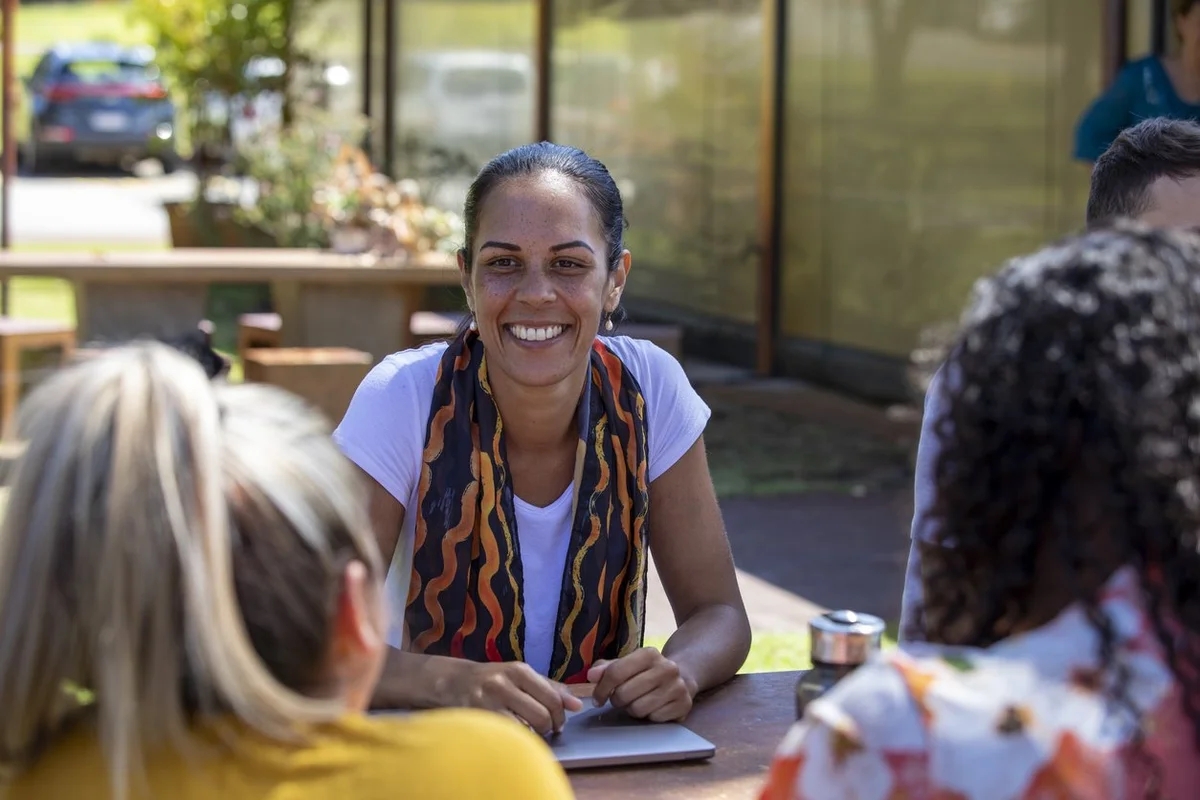Jamie Collins, 54 years old transgender woman from Shreveport Louisiana was aware that using drugs and engaging in sexual activity with multiple partners posed risks to her health, so when she received news that she was HIV positive it came as no shock. After moving to Dallas Texas she received this news after being treated at Parkland Hospital after being physically attacked.
Before Collins could fully process this news, a community health worker (CHW) who was HIV positive was sent from Parkland’s HIV health clinic directly to Collins’ bedside.
Collins had already experienced CHWs first-hand; one came to visit her during a period in jail and convinced her to seek drug addiction treatment, while Parkland’s CHW became an invaluable support system.
“That gentleman sat with me, talked with me, took me for lab work appointments and attended doctor visits with me to ensure everything ran smoothly,” explained Collins. The CHW also assisted Collins in finding affordable housing and public transportation vouchers as well as connecting her to other health and social services.
Collins continues to receive support from her CHW even though he no longer works at the clinic; they count him among their close relationships, which she credits with being part of why she decided to become a community health advocate herself.
Collins found her Community Health Workers (CHWs) “incredibly compassionate. Even though I am generally strong-willed, there were times of uncertainty and anxiety related to my situation; without their assistance, my health would likely not be what it is today.”
What are Community Health Workers (CHWs)? CHWs have long been considered champions of public health and play an integral part in providing essential medical support to those in need. Indeed, World Health Organization has recognized them as some of the key providers of global public health services.
CHWs exert significant influence through their intimate knowledge of urban and rural communities, connecting medical systems to vulnerable or historically marginalized groups who require healthcare. CHWs may work either as volunteers or paid staff and their titles depend on which health and social service organization they’re affiliated with – these could include peer advisors, promotoras, community health aides, health coaches or outreach workers – increasing numbers hold degrees or certifications while others credit strong bonds between themselves and their community members as valid credentials for being CHWs.
CHWs provide various health and educational services, such as drug abuse intervention, nutrition education, vaccinations, infectious disease counseling services, child healthcare support and follow-up.
Engaging a trusted CHW as their advocate can often make the experience less daunting for patients seeking medical help, said Helen Limbani, a public health worker of 30 years. Their advocacy can often make the difference in whether a person continues receiving necessary treatment or decides to abandon it all together, said Helen.
“Health workers become like family,” noted Limbani, currently serving as case manager at The Afiya Center, a Dallas reproductive services center offering reproductive services for Black and brown women. Initially volunteering at hospitals and clinics, before becoming employed as case manager of The Afiya Center – something she achieved as a volunteer before being hired permanently as case manager by them. Being non-doctors makes them less intimidating for individuals; degrees may help, but passion plays an equally important role.
Historical Origins of Community Health Workers
The use of non-physicians for healthcare services dates back as far as 1650 when some German military personnel were trained as medical assistants known as “feldshers.” Peter the Great then introduced them as part of his Russian army health services. Since that time, the concept has expanded and matured significantly to become a source of inspiration for community health programs worldwide. CHWs were particularly instrumental during Covid-19’s outbreak in 2005 which overwhelmed healthcare systems worldwide. They served as an entryway to services that could lessen the adverse consequences caused by pandemic. Recognizing their value, the Centers for Disease Control and Prevention (CDC) established Community Health Workers for COVID Response and Resilient Communities – an initiative providing financial and technical assistance in order to strengthen their service efforts.
Growing Demand
CHW employment appears to be on the rise across the U.S. According to estimates by the federal Bureau of Labor Statistics, an estimated 61,010 workers nationwide are employed as Community Health Workers; not including unpaid volunteers.
Alex Fajardo has been serving communities as a CHW for decades. When he joined El Sol Neighborhood Educational Center – serving inland and coastal communities of San Bernardino County and Southern California – there were only three CHW volunteers (promotoras). They asked him to continue doing what he already was – serving as an interpreter, providing seniors with transportation and working against youth violence in his neighborhood. Today he oversees 150 mostly bilingual laypeople trained to serve over 50,000 community residents of his agency!
Promotoras are community health workers who provide services in Spanish-speaking communities.
Fajardo recognizes that more opportunities exist for CHWs to provide service; however, he’s concerned about their grassroots identities being compromised due to an increase in medical and government institutions hiring CHWs. Traditional CHWs now must compete for jobs with individuals holding formal certifications or degrees but less experience understanding the needs of the community they will serve.
Fajardo urges candid and on-going discussions between community health workers (CHWs) and medical system representatives on ways to strengthen CHW programs without undermining the essence of CHW roles, or placing them into positions as enforcers for institutions they work for rather than advocates for those they were trained to serve.
Fajardo explained, “this is about relationships,” noting how important it was to remain loyal to and represent the voice of their communities as part of being part of that space is where our roots lay.
